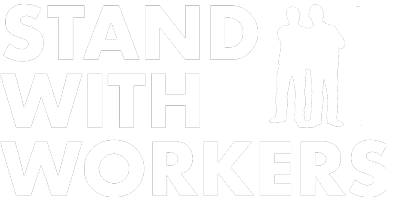Mark Janus was the plaintiff in Janus v. AFSCME, a 2018 Supreme Court case challenging the requirement that government workers pay dues or fees to a government union in order to keep their jobs. On June 27, 2018, the Supreme Court ruled in favor of government workers, declaring it was unconstitutional for employers to force them to be government union members or pay fair share fees.
Unfortunately, many unions, and the politicians that protect their interests, have been slow to implement that ruling. In some states, government leaders even declared the Supreme Court decision didn’t apply to them.
As a result, many government workers are unaware of their rights and are being bullied or coerced to joining and remaining in a union.
Mark Janus joined the Liberty Justice Center and travels around the country to raise awareness of government workers’ rights and the special union and political interests that threaten to deny them. The Liberty Justice Center has filed over a dozen lawsuits on behalf of government employees who are being told they can’t exercise their Janus rights and must continue being union members and paying dues.
If you work for the government and are being told you cannot leave your public-sector union or if you started working for the government after June 27, 2018, and were never told you had a choice, contact us. We can help!
Mark’s Story
My name is Mark Janus, and I was the plaintiff in the Supreme Court case Janus v. AFSCME. On June 27, 2018, the Court ruled that government employees like me could not be forced to pay a government union as a condition of working in public service. This landmark ruling was a tremendous victory for workers’ rights, and I was privileged to be a part of it.
For more than a decade I worked a child support specialist for state government in Illinois. Quite simply, my job was to help people. When parents weren’t together anymore, I worked to ensure that children received all the financial support available to them.
Serving others has always been a part of who I am. I took pride in my job at the state. But in order to do this type of work, I was forced to check my First Amendment rights at the door. That’s why I asked the U.S. Supreme Court to step in.
>
“I love my job. Serving others is part of who I am.
”
I learned about public service during my youth, when I became a Cub Scout. I worked my way all the way up to rank of Eagle Scout, and have remained active with the scouts throughout my entire adult life. Through scouting I learned self-reliance. But scouting also taught me that I must take an active role in my community; as I better myself, I must also strive to improve the world around me. That’s why public service matters so much to me.


